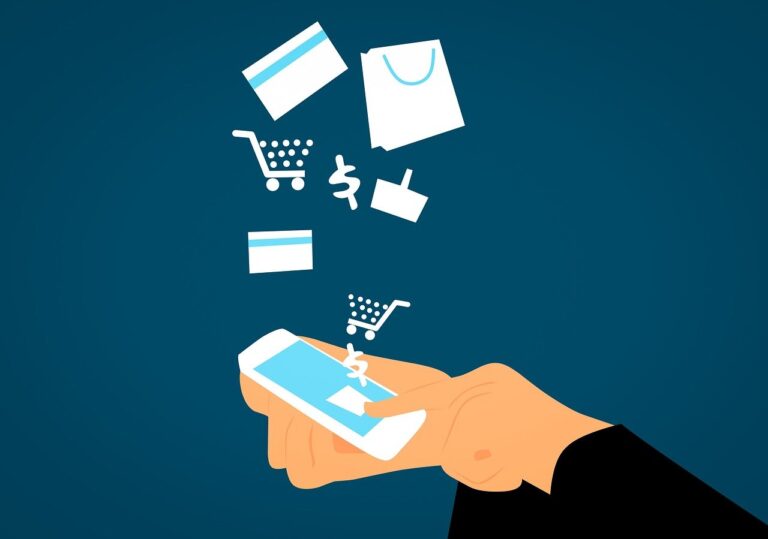The digital revolution has redefined how society transacts, with online payment systems becoming as ubiquitous as the internet itself. Whether buying groceries or closing high-stakes deals, the transition from hard cash to e-cash mirrors general technological and societal change. The change is especially pronounced in industries where speed, security, and ease are a matter of course, like iGaming, retail, and freelance economies. As payment mechanisms increase, spanning cryptocurrencies and online wallets to smart bank cards, the distinction between traditional finance and digital innovation continues to blur.
Instant Transactions and Anonymity
iGaming has been at the forefront of embracing emerging payment technology. Operators such as Luckyblock.com are a case in point, with players able to deposit and withdraw instantly using cryptocurrencies like Bitcoin, Dogecoin, and Ethereum. Unlike traditional bank-based systems with sluggish verification mechanisms, they use crypto transactions that are settled within minutes, which is well-suited to the online betting and gaming environment that thrives on speed. The change has also resolved privacy concerns, as individuals are now able to play without having to reveal sensitive financial information.
Online wallets such as Skrill and PayPal have also become popular in iGaming as a middle ground between the anonymity of cryptocurrencies and the familiarity of fiat money. These allow for simplified transactions while being compliant with the regulatory requirements, allowing sites to fulfill anti-money laundering (AML) demands. This results in a hybrid system where the players switch between payment platforms depending on the urgency, trust, and availability per geographical location.
Digital Wallets: Reshaping Retail and Everyday Commerce
Aside from iGaming, digital wallets such as Apple Pay, Google Wallet, and Alipay have changed the game of consumerism. This extends to subscription-based services where automatic renewal processes reduce friction to streaming platforms, software companies, QR code-based transactions, and utility operators.
The emergence of “super apps” is a testament to this trend. Indonesia’s Gojek and India’s Paytm, for example, integrate ride-hailing, food delivery, and banking services within a single digital wallet ecosystem. This combination reduces the mental effort of juggling different accounts while encouraging customer loyalty through cash-back incentives and discounts.
Security remains a priority, however. Biometric authentication like fingerprint and facial recognition now augments traditional PINs, preventing fraud on lost or stolen devices. Meanwhile, blockchain-enabled wallets like MetaMask are bridging the gap between everyday commerce and decentralized finance (DeFi), enabling microtransactions in virtual worlds and NFT marketplaces.
Cryptocurrencies: Disrupting Cross-Border and Niche Markets
Cryptocurrencies have crossed over from speculative exchange to acceptable means of payment in sectors that require cross-border efficiency. On-demand platforms such as Upwork and Fiverr are witnessing more use of crypto payments from international contractors, skipping high wire transfer charges and foreign exchange conversion time. Similarly, remittance corridors such as the Philippines-to-Saudi Arabia have stablecoins such as USDC reducing transaction charges from 7% to under 1%.
Real estate is yet another frontier. High-end property developers in Dubai now accept payment for apartments in Bitcoin, aiming for high-net-worth individuals who seek diversification of portfolios. While volatility is a problem, stablecoins pegged to fiat currencies minimize the risk, which stimulates confidence in long-term deals.
Bank Cards: Adapting to a Contactless Future
Despite threats of redundancy, bank cards have evolved to endure. Contactless “tap-to-pay” technology has increased steadily in the EU and UK. Cards are also merging with digital wallets so that customers can tokenize their Visa or Mastercard details for online shopping—a security-enhancing feature that generates throwaway card numbers per transaction.
Reward systems have also changed. Dynamic cashback schemes change offers based on spending behaviors, and upscale travel cards collaborate with airlines to give instant lounge entry and mileage rewards via app notifications. For the underbanked, prepaid cards reloaded through mobile money services are a gateway to formal banking channels without credit checks.
The Uncharted Territories: Micropayments and IoT
Emerging payment systems are extending to previously impractical niches. Micropayments like the BAT token by Brave Browser compensate users in cryptocurrency for viewing advertisements, rebalancing revenue streams within the attention economy.
The Internet of Things (IoT) refers to a web of smart devices that share and process data and perform tasks without human intervention. These can range from household appliances like refrigerators and thermostats to industrial equipment and automobiles, with sensors, programming, and connectivity built into them.

In the context of online payments, IoT is transforming payment processes by enabling smart devices to make automated payments. Electric vehicles (EVs) equipped with embedded SIM cards or RFID tags can pay for tolls, parking, or charging station services on their own. It eliminates the intervention of manual payment systems, leading to friction-free and time-efficient experiences.
Regulatory Challenges and Global Adoption
Governments are trying to walk a tightrope between innovation and consumer protection. While the EU’s Revised Payment Services Directive (PSD2) mandates strong customer authentication, Nigeria’s central bank excluded banks and other financial institutions statutorily within its regulatory ambit from processing/enabling crypto transactions.
Sweden is now witnessing cashless payments making up 95% of retail expenditure in 2016 already, with apps like Swish taking the lead. In Kenya, M-Pesa’s mobile money system has emerged as an economic lifeline for rural communities, making payments ranging from school fees to microloans for farmers possible. These two instances demonstrate the uneven but inexorable worldwide shift toward digital payments.





